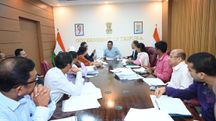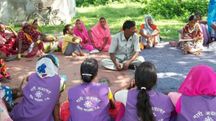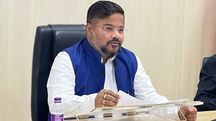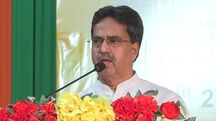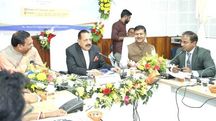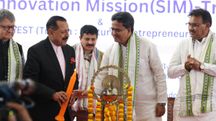Tripura to roll out e-markets in 21 agri hubs to boost farmers’ income
Tripura government plans e-markets in 21 agricultural hubs to boost farmers' income and market access. The initiative aims to reduce middlemen and modernise agriculture with technology support
 Representative Image
Representative ImageTripura is set to bring 21 agricultural markets under the Electronic National Agriculture Market (e-NAM) platform, a move aimed at expanding farmers’ access to buyers across the country and improving income opportunities.
Agriculture and Farmers’ Welfare Minister Ratan Lal Nath announced the plan while inaugurating a new market at Kulai and a Village Knowledge Centre at Noagaon in Dhalai district. He said the initiative, supported by the Centre, will allow farmers to directly sell their produce online by uploading images, specifying quantities, and reaching a wider pool of buyers.
Tripura currently has 554 agricultural markets and 84 wholesale markets, with 21 notified as Agri-Produce Markets. Nath stressed that the government has significantly scaled up investment in agricultural infrastructure.
“In the seven years before 2018, only Rs 20.20 crore was spent on market development. In contrast, our government has invested Rs 303 crore in the past seven years. This itself shows our commitment to the farming community,” he said.
The digital transition will take place in two phases. The first will cover seven markets — Panisagar, Pabiachara, Kulai Bazar, Teliamura, Mohanpur, Sonamura, and Santirbazar — with an allocation of Rs 2.10 crore from the Centre. The second phase will cover 12 more markets, including Dasda, Bachaibari, Kalyanpur, Champaknagar, Bishalgarh, Jampuijala, Melaghar, Barpathari, Natun Bazar, Ganda Twisa, and Chawmanu.
Each upgraded facility will be equipped with administrative offices, auction platforms, laboratories, grading and sorting systems, drinking water provisions, warehouses, and weighing machines.
Highlighting the broader objective, Nath said, “Our primary goal is to double farmers’ income and ensure they receive fair prices for their produce. Agriculture is the backbone of our economy, and strengthening market access is the key to sustainable development.”
Copyright©2026 Living Media India Limited. For reprint rights: Syndications Today
